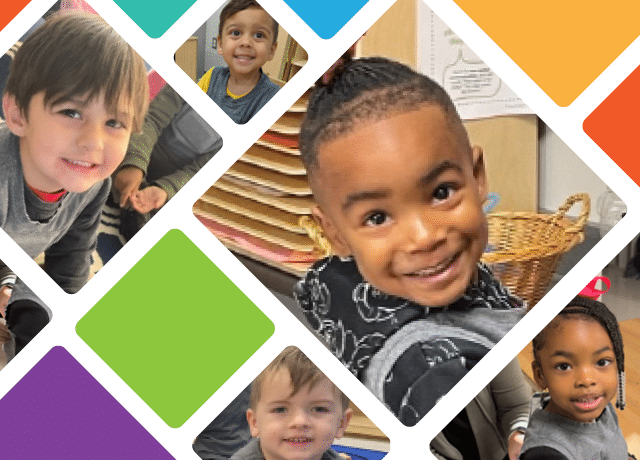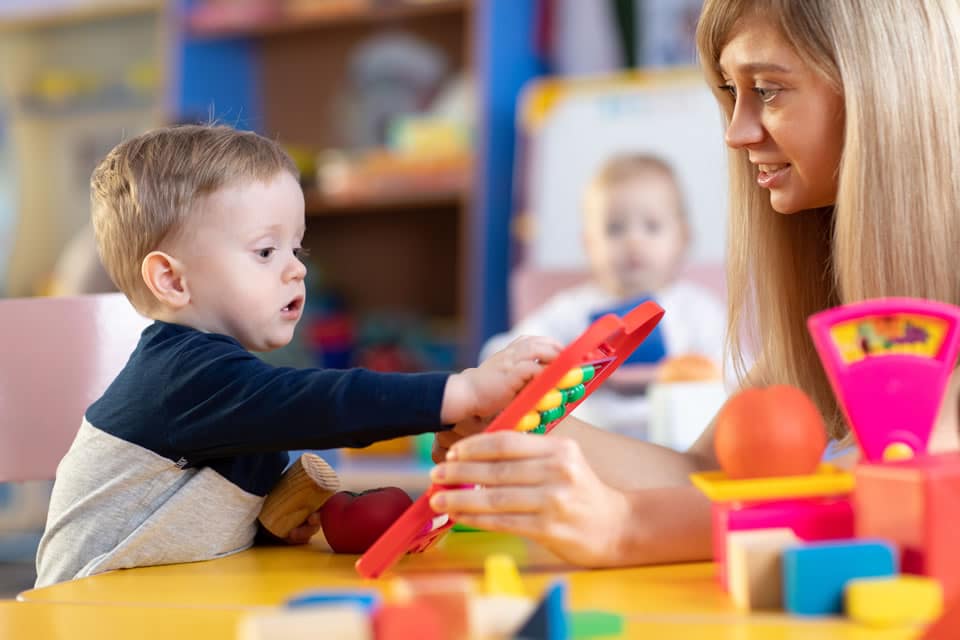In 2018, a researcher in South Carolina asked a deceptively simple question: How might a preschooler’s home language environment bear on their readiness for kindergarten?
By 2021, she had arrived at an answer. The results of her study indicated not just a link between conversational turns and kindergarten readiness, but a statistically significant correlation.
"I genuinely believe that if parents understood how vital conversational turns are, they would make an extra effort to engage their children in daily conversations, knowing they are making a difference in their child's future academic success."
-Dr. Jody Dill
Dr. Jody Dill, a 25-year veteran of elementary education, was pursuing a Doctorate of Education at North Greenville University in Greenville, S.C., under the direction of Dr. Mary Ann Solesbee. Her study compared the Kindergarten Readiness Assessment (KRA) scores of two groups of children.
One group consisted of 45 children whose parents had participated in LENA Start or LENA Home when the children were in preschool. LENA’s programs give caregivers detailed reports about their children’s language environments, as captured by LENA’s “talk pedometer” technology. It also gives them the opportunity to attend weekly group classes or to receive home visits designed to help increase the amount of interactive talk they have with their children.
A second group consisted of 45 children of corresponding gender, ethnicity, and socioeconomic status whose parents had not participated in a LENA program.
The full study has been written up at length in Dr. Dill’s dissertation, entitled “The Relationship Between Conversational Turns and Student Achievement.” The key takeaways illustrate just how impactful conversational turns can be:
- A higher percentage of children from the LENA sample — 50% more — scored in the highest KRA range of “Demonstrating Readiness.”
- A lower percentage of children from the LENA sample — 36% less — scored in the lowest KRA range of “Emerging Readiness.”
- The more active parents’ participation was in the LENA program, the higher their children’s KRA scores.
- The more conversational turns children experienced over the course of the LENA program, the higher their KRA scores.
“The study results were exciting because now there is data to back up what I’ve seen in the classroom for years,” Dr. Dill said. “I genuinely believe that if parents understood how vital conversational turns are, they would make an extra effort to engage their children in daily conversations, knowing they are making a difference in their child’s future academic success.”
Stream the webinar!
Now available to stream on demand! A webinar discussion with Dr. Jody Dill and Dr. Mary Ann Solesbee about this study. Also featuring Dr. Dan Wuori, former Deputy Director of South Carolina First Steps to School Readiness and currently the Senior Director of Early Learning at The Hunt Institute.

Kindergarten readiness in Cherokee County, S.C.
The study is a story of community partnerships.
Just 50 miles or so down the road from where Dr. Dill was completing her doctoral coursework, hundreds of families were participating in a relatively new program called Talk to Me Cherokee. This initiative, a partnership among Cherokee County School District, Cherokee County First Steps, the public library, the United Way, and other local organizations, offers all three of LENA’s programs — Grow, Start, and Home — to the parents and teachers of infants, toddlers, and preschoolers. The program would become the focal point of Dr. Dill’s research, originating with a suggestion from her graduate advisor.
“I explained to her that Cherokee County had data and that she could mine that data,” Dr. Solesbee said. “I try to encourage people to help school districts to get the information they need from the data that’s already there.”
Cherokee County’s most prominent landmark is the “Peachoid,” a peach-shaped water tower in Gaffney that sits alongside Interstate 85. Located in the upstate region of South Carolina, the county is home to around 55,000 people. The poverty rate is high (20.5%), and the percentage of adults who have a four-year college degree is low (40% below the national average).
School readiness among children in Cherokee County is low as well. While it’s far from the lowest-performing of South Carolina’s counties, it’s also far from the best. Some of the latest numbers, from the fall of 2019, paint a stark picture:
- Statewide, 39% of new kindergarteners scored in the highest KRA range, “Demonstrating Readiness.” In Cherokee County, it was 30%.
- Statewide, 24% of new kindergarteners scored in the lowest KRA range, “Emerging Readiness.” In Cherokee County, it was 30%.
Looking specifically at the KRA domain of Language and Literacy, last reported in 2018, we see a similar trend:
- Statewide, 34% of new kindergarteners scored in the highest KRA range, “Demonstrating Readiness.” In Cherokee County, it was 27%.
- Statewide, 23% of new kindergarteners scored in the lowest KRA range, “Emerging Readiness.” In Cherokee County, it was 28%.
“A kindergarten-ready child comes to school with an extensive vocabulary, plays and interacts appropriately with peers, follows one- and two-step teacher directions, and expresses their needs and wants in complete sentences,” Dr. Dill said. “An emerging readiness child comes to school with a limited vocabulary, cannot follow simple directions, and may not be able to express their needs and wants. They need frequent redirection and help from the teacher because they cannot work independently and struggle with decision-making.”
Conversational turns, kindergarten readiness, and beyond
Compared to their neighbors in Cherokee County, the children in Dr. Dill’s home county of Greenville are ranked among the most kindergarten-ready in South Carolina, exceeding KRA state averages across the board. In Greenville County, it’s also the case that poverty rates are lower and educational attainment rates are higher. Independent of socioeconomic factors, though, could simply increasing the number of conversational turns preschoolers experience contribute to school readiness? Could a focus on interactive talk from a young age help close the gap?
“I would like to see the long-term effects of the students that Jody looked at in her work,” Dr. Solesbee said. “Do the boosts that children see in KRA readiness extend to third grade and beyond? I know this is the next step. What are the long-term effects of conversational turn-taking?”
These initial results suggest that Talk to Me Cherokee is doing exactly what it set out to do. It’s brightening individual children’s futures in Cherokee County, and it’s brightening the overall picture of kindergarten readiness across the community.
Lisa Blanton, who manages the school district’s LENA programs as Coordinator of Early Childhood Education, agrees. “Everybody feels like they can be a part of it,” she said “The awareness of what we’re doing is out there now, and people know that we’re here to help parents help their kids to become school-ready.”






